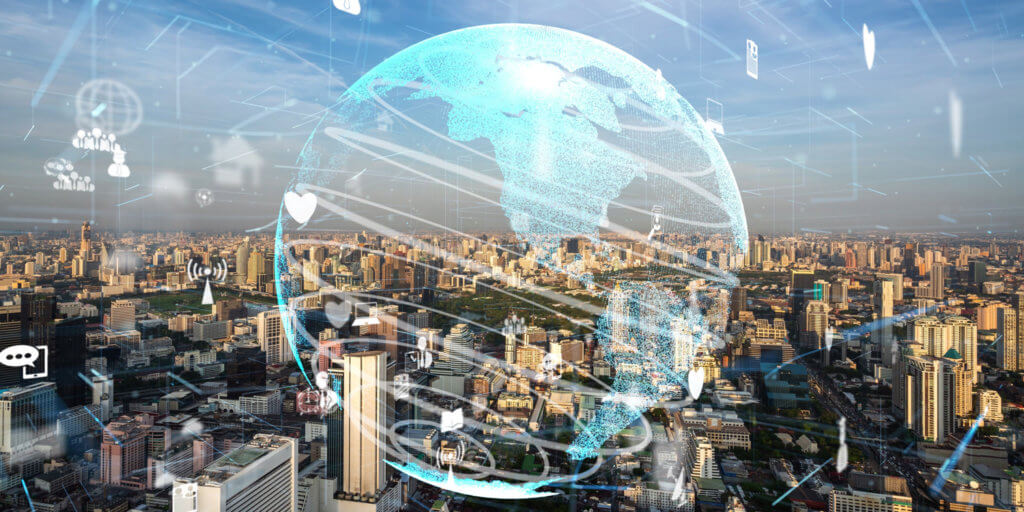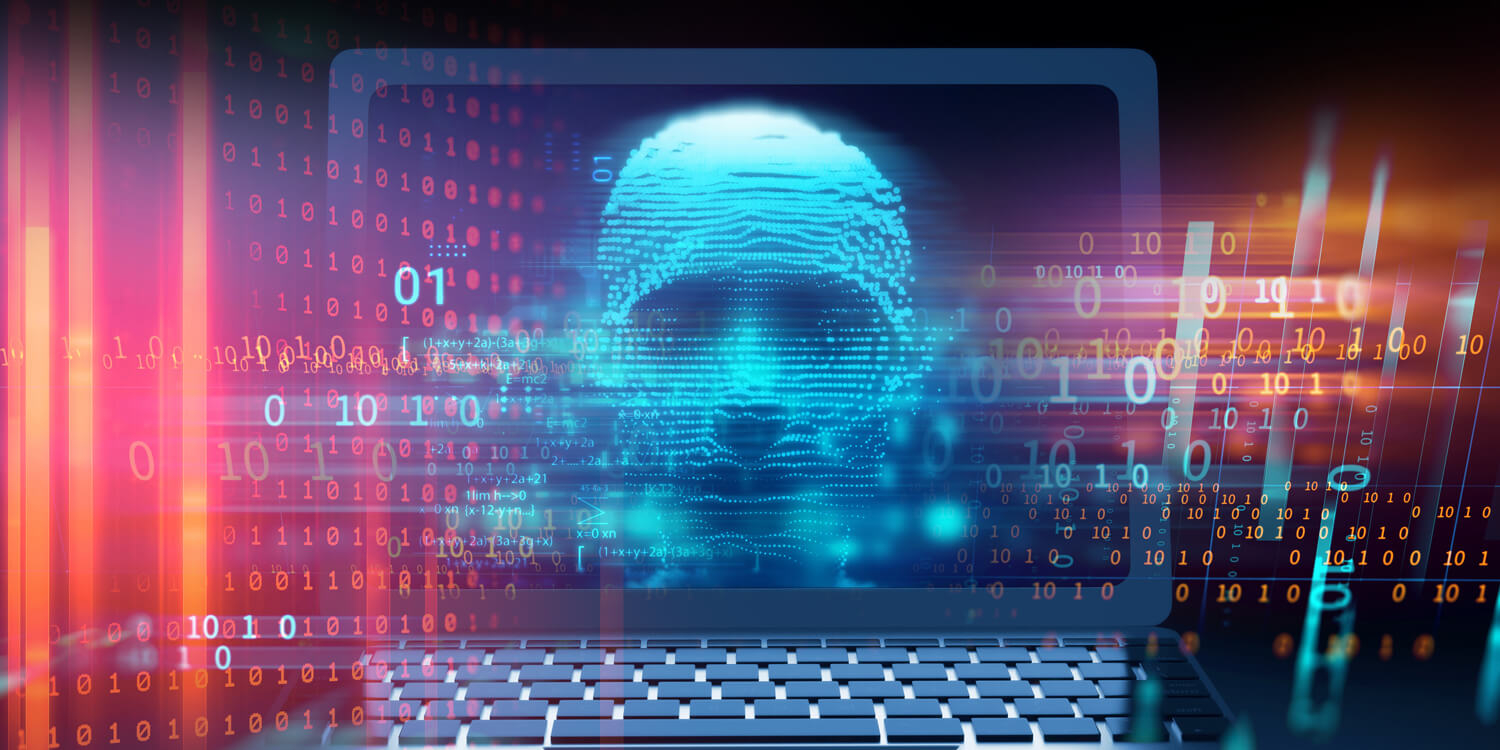Why You Shouldn’t Browse the Internet Without Virus Protection
Many PC and internet users are still unaware of the dangers lurking on the World Wide Web. Of course, most have heard of viruses, trojans, malware, ransomware, and the like. But surely that only affects others. One’s self is far too uninteresting for cyber criminals. So few are bothered when the free trial of antivirus software expires, along with virus protection. They continue browsing without online protection. And when it happens, it’s usually too late.
In this blog post, we want to inform and raise awareness. We’ll show you:
- Reasons why many users are still very negligent with this topic and browse without protection and adherence to security rules
- What can happen when what shouldn’t happen happens – and a virus reaches a computer
- Why viruses, malware, and co. are developed and why it can affect any user – even those who think there’s “nothing to get” on their PC.
Of course, we’ll also give you some tips on how to prevent the worst-case scenarios. And we’ll show you what you can try if it has happened anyway.
Why many internet users browse without virus protection, or with expired antivirus software:
Many users are online – without virus protection or with expired and not updated antivirus software. But why?
Here’s a list of the most common reasons that explain this behavior, which we all know is wrong and dangerous. Usually, it’s a combination of the reasons listed here.
1. Ignorance: No idea what viruses can do
Many internet users are unaware of the threat posed by viruses and malware and don’t know the risks. Many users who browse without protection have never had a virus on their computer. Either they have no experience with viruses at all, or they have only encountered “harmless viruses” so far. After all, not every computer virus is immediately life-threatening or deletes all personal data. Consequently, many users have no idea of what all can happen. For those who underestimate the dangers of browsing without, or with expired antivirus software, the second part of this article is highly recommended.
2. Ignorance: Lack of knowledge on how to protect oneself properly
Many internet users are not sufficiently informed about how to protect themselves against viruses, malware, and co. Additionally, there’s a certain technical lack of knowledge about what computer viruses exactly are and how they work. We recommend the last part of this article to these users, where we briefly summarize the most common tips on how to effectively protect yourself on the internet. Small spoiler: There’s of course more you should do than just installing current antivirus software.
3. Blind Trust
Many internet users simply trust that nothing will happen to them while browsing. After all, nothing has happened yet. Besides, they have a firewall, which is surely sufficient. Unfortunately, this is a misconception. Small fun fact: The phrase “this has never happened to me” is most often said after something has happened.
4. Costs
Some users are not willing to pay for antivirus software. When the free trial of the virus software expires, it’s not renewed. These users therefore either browse completely without protection or resort to free programs that may not protect as well. However, good virus protection isn’t expensive at all. As with almost all software products, good offers are always available. You just have to find them. More on this in the last part.
5. Laziness Convenience
Some users may not have enough time or desire to take care of their computer’s security. Which security solution is the best? Where do I get the best offer? Where’s the best value for money? How does the new program work? What happens when the new antivirus software expires? Many intend to deal with these questions, but then postpone it time and time again. However, you don’t have to make the decision so difficult …
6. Overestimation of One’s Own Technical Abilities
This is probably one of the rarest reasons why users don’t organize virus protection, but it certainly occurs: Users overestimate their own abilities and believe, for example:
- they follow all security rules when surfing and therefore don’t catch any viruses
- they have enough expertise to deal with a virus themselves if necessary
This may be true for a very, very few. For most, unfortunately, this thought is a fallacy.
What Viruses and Malware Can Do to Your PC
We’ve already briefly mentioned it in the previous section: Not every virus is life-threatening or deletes all your own data. Some viruses are just annoying.
In the following section, we’ll show you a short list of possible scenarios and damages that viruses, malware, and other malicious programs can cause to your system. You’ll quickly see that some of this is definitely no longer fun and indeed has the potential to become life-threatening.
1. Delete or Encrypt Data on Your PC
For many, certainly the worst conceivable damage: Viruses land on the PC and delete, damage, manipulate, and encrypt your own data. Then the hackers demand a ransom for decryption or restoration. For those who make up-to-date security copies of their own data, this is probably not too big a problem. Nevertheless, in addition to personal data that is deleted or encrypted, the viruses can also specifically attack system files. Then it becomes at least very time-consuming, as the system must be set up again and the previously used software must be reinstalled (possibly repurchased).
2. Theft of Personal Data
Viruses and malware can steal personal data such as usernames, passwords, accounts for various platforms, bank details, and credit card information and pass them on to cybercriminals.
Cybercriminals can use your identity to:
- Use your data to shop at your expense. Although two-factor identification has been around for a long time, it’s still not impossible that the stolen data is sufficient to empty your account.
- Carry out other illegal activities on the net under a disguised account. This covers their own tracks, because you are initially the culprit since the crimes were carried out via your account.
- Damage your reputation: Through rants on social media or posting embarrassing, compromising content.
You see: Even if you create a daily backup of your data; this damage can become really unpleasant.
3. Manipulate and Misuse Your Computer
Some viruses don’t attack your data, but your system as a whole. Then hackers control your PC. The consequences could be:
- Your system is slowed down because hackers use your computer’s capacity for other things.
- For example, your PC is integrated into botnets. Then hackers use your PC for malicious and illegal purposes such as DDoS attacks or sending spam or phishing emails.
- Hackers may then also use your other accounts (besides email, also social media) to send malicious or dangerous links to your friends and acquaintances – without you noticing.
- Or hackers access your laptop camera and film you in embarrassing moments. A popular trick is filming while watching porn. These recordings are then used to blackmail you.
Of course, there are also viruses that “only” (in quotation marks) impair and crash individual programs, or spy on your online and surfing behavior, for example, to display targeted advertising.
Generally, however, the rule is: There are no harmless viruses. Every virus, every malware is harmful to your computer and your data. Even if a virus seemingly has no effect on your computer or causes no immediate, recognizable damage. Perhaps it’s just waiting to intercept the “right” passwords or is on standby to become active at a later time.
Why Viruses and Malware Are Developed and Why This Danger Can Affect Everyone
From the list in Part 2, you’ve probably already recognized why cyber criminals develop viruses and why you too – yes, you, even if you consider yourself a totally uninteresting target – are at risk and can become a victim. We’ve summarized here once again exactly what cyber criminals aim to achieve with viruses.
1. Making Money
Developing and distributing viruses, malware, and the like is the business of hackers and cybercriminals. It is their profession.
- Some viruses steal bank data and passwords from accounts, and cybercriminals use this method to get your money (or shop at your expense).
- Other viruses manipulate your system – encrypting important files, making embarrassing videos, threatening to damage your reputation, etc. They create potential for blackmail. If you want it to stop, you have to pay; that’s the business model. Small spoiler: Once you’ve paid, it usually really starts. It will definitely not end with the first payment.
2. Stealing Your Data – and Selling It
This point is also about making money. However, viruses are not used to steal your money, but to steal your data and resell it to third parties. This could be, for example:
- Your online and browsing behavior, which is sold to advertisers
- Your entire online identity, which third parties can exploit in multiple ways
- Your email or social media accounts, which cybercriminals use to try to get new lucrative victims with you as the sender
3. Using Your PC for Illegal Activities
Most criminals are, of course, after money. And regardless of whether you’re poor or rich, everyone who surfs the internet is equally affected. But there are also cybercriminals who pursue ‘higher goals’ with their viruses. But even with this group, you’re right in the line of fire.
- Here, viruses are deployed and your PC is misused. Your computer then becomes, for example, part of a botnet. In such a network, an army of infected computers is united to carry out malicious purposes like DDoS attacks. This attack could, for instance, paralyze the web server of a government agency, a hospital, the military, etc., and thus cause great damage on other levels. And your PC is then a part of this attack.
- Or your social media accounts are used to share and spread fake news and conspiracy theories. Do you have expertise in a particular area? Your friends will probably believe these lies.
Interim conclusion: Surfing without protection against viruses and security knowledge can have serious consequences
As shown, there are many reasons why users surf the internet carelessly and without adequate protection, and don’t renew antivirus software that has expired. Usually, it’s a mix of convenience, ignorance, and trust (‘nothing will happen’). Sometimes it’s also the cost. Good antivirus software at the regular price is certainly not cheap.
But you’ve also seen what can happen when the damage occurs and a virus has infected a system. Whether the criminals delete, encrypt, steal your data, or misuse your system: It will certainly cost you a lot of time, money, and especially nerves to get the effects under control. And often, you will irretrievably lose valuable data.
And we’ve shown you the main reasons why criminals do what they do with their viruses. Of course, it’s about money. But even if you don’t have much of it, you’re just as much in the line of fire as anyone else. Usually, these criminal actions involve ‘small amounts’ and the mass makes the profit. And quite apart from that: How does the virus that has just encrypted all your vacation photos and is blackmailing you know that you can’t even pay an amount of 100 euros? Not to mention that you should never pay, even if you could.
So you see: Being a seemingly uninteresting target for cybercriminals is not enough to avoid potential damage. You too must protect yourself. We’ll show you what you can do in the next part.
How to Protect Yourself While Surfing – and Minimize Your Risk of Damage from Viruses, Malware, and the Like
Of course, reliable and good antivirus software is the first priority when surfing the internet. If the antivirus software has expired, it is renewed. This is the most important thing of all. But there’s more you can do to be safe from viruses, malware, and the like when surfing the web. Here are our top 5 tips that you should follow in addition to using antivirus software.
1. Update Your Software Regularly
It is important to regularly update all programs on your computer, including the operating system. Don’t delay updates. Each update closes security gaps and reduces the risk of infection.
2. Use Strong Passwords:
Use strong passwords for all your accounts, consisting of a combination of letters, numbers, and special characters. This makes it harder for cybercriminals to guess your passwords through brute force attacks. And another tip: Use different passwords for each account. Because if one account is hacked, the perpetrators cannot use the data to hack other accounts.
I know, in theory, this sounds much easier than in practice. But there are also powerful software solutions for this, such as the password manager from our partner Steganos Software.
3. Be Careful When Opening Email Attachments and Clicking on Links
Do not open email attachments or links from unknown or suspicious senders, as they may contain viruses and malware. Additionally: Avoid downloading files from insecure sources. At the latest, when you are prompted to enter login credentials somewhere via such a link, you should immediately abort and run a virus scan.
4. Supplement Your Virus Protection with a Firewall and Ad Blocker
A firewall can help protect your computer from unwanted access and malicious attacks – as an add-on to virus software. An ad blocker can help block unwanted pop-up ads and advertisements from unreliable sources that may contain viruses and malware.
5. Regularly Create Backups of Your Most Important Data and Files
It’s best to have this backup on an external hard drive or securely in the cloud. If your PC is then infected with a virus, you at least know your data is safe. You can then immediately begin to renew your entire system without worrying about data loss, hoping to prevent other effects.

Additional Information
The security and protection of PCs are one of our main concerns. We have already examined the topic of protection against viruses, malware, ransomware, and co. on our blog from various perspectives. Here’s an overview of the most important posts.
You can also find valuable information and further assistance here:
Helpful tools: Protection against viruses before and the ‘morning-after pill’
In addition to theory, we also offer practical solutions.
The rescue tool for Windows when the virus is already there – the SecuPerts Rescue Stick
The SecuPerts Rescue Stick is a first-aid tool for your PC. It helps with various damages, but also when a virus has made it onto your system. Then use this stick. It starts an independent, Linux-based operating system and gives you the ability to access your Windows from the outside in a protected manner. Using analysis tools, you can then:
- Start data recovery tools and secure all the files that the virus hasn’t infected yet
- Scan your PC for viruses, find malware from a protected interface, quarantine them, and possibly delete them completely
If you have the stick readily available in your drawer immediately after the infection, it’s not too late, especially for data rescue attempts. Even though the tool is quasi the rescue pill for afterward – you should have the tool ready beforehand.
Read more about the functions of the SecuPerts Rescue Stick and how it specifically helps with virus infections here: Rescue Stick – Help for All PC and Windows Problems. Also Helps with Virus Infections
Antivirus Software
Currently, our software range does not include any antivirus software that we can offer you at a favorable price. However, many manufacturers, including antivirus software providers, frequently offer us their products for sale. We often receive attractive discounts of up to 50% or more. Simply subscribe to our newsletter, confirm our double opt-in, and we’ll keep you updated. It’s best to sign up right away. If your antivirus software has expired, you already have a good alternative.


